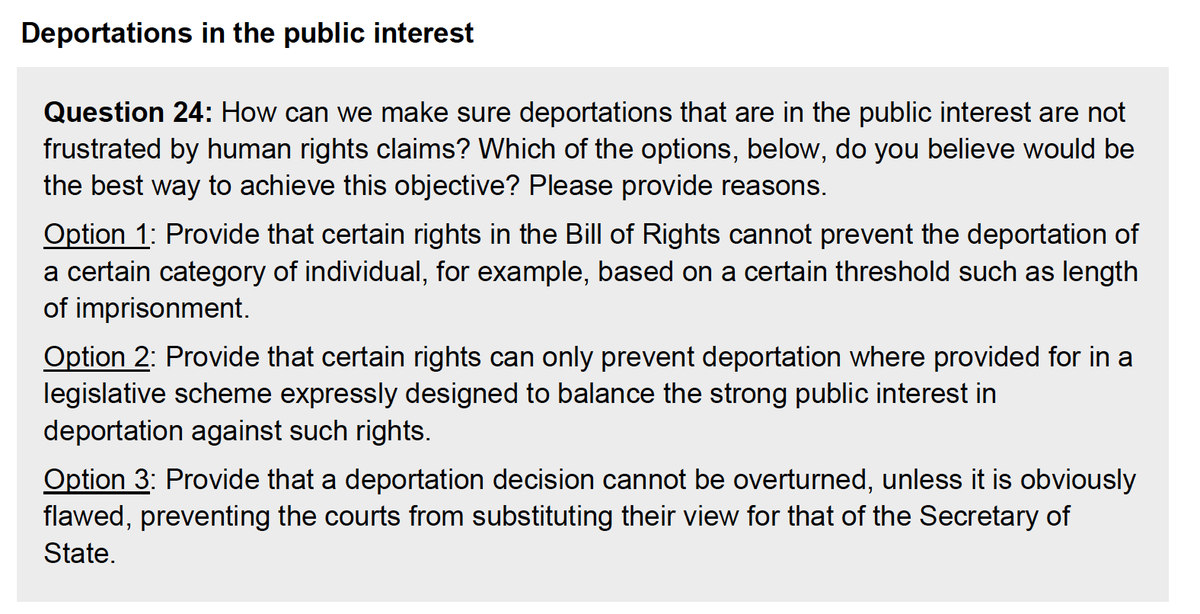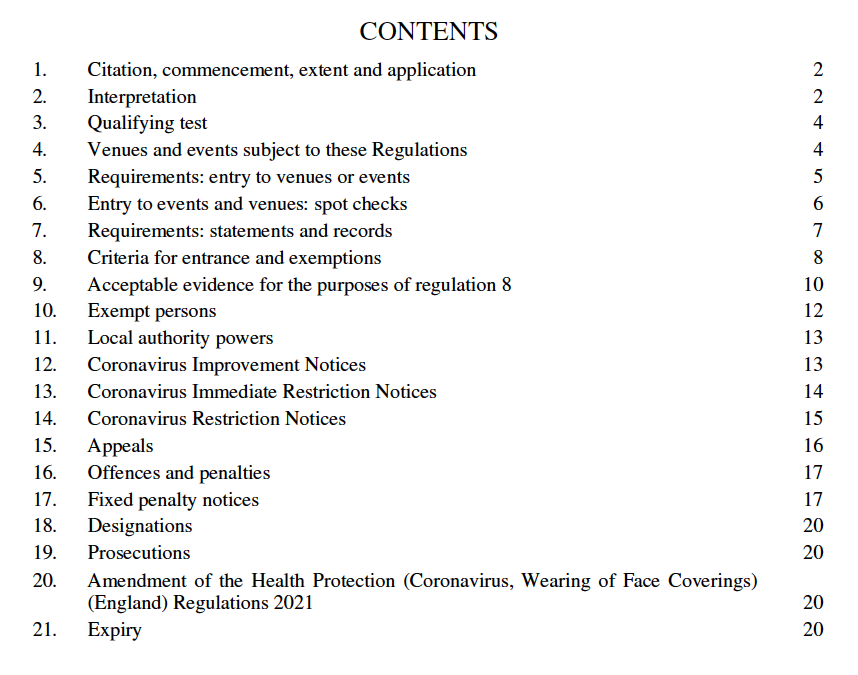
The Bill of Rights consultation has been launched
gov.uk/government/con…
Consultation document here: assets.publishing.service.gov.uk/government/upl…
gov.uk/government/con…
Consultation document here: assets.publishing.service.gov.uk/government/upl…

What we really need to see in the Independent Human Rights Act review document which is meant to be published alongside this.
The govt has had it for weeks without publishing so my guess is it wasn't exactly what they were hoping for
The govt has had it for weeks without publishing so my guess is it wasn't exactly what they were hoping for
Useful to go to the end first as this is where the actual proposed changes to the Human Rights Act are - in Appendix 2
Both options on reform of section 2 (requirement to take into account European Court of Human Rights cases) change the "must" to a "may" and variously change the emphasis and encourage courts to look at domestic case law (which they do anyway) 



Two options for watering down the interpretative requirements in section 3 - but option 2B, which doesn't require a provision to be ambiguous to be subject to the interpretive obligation, is not a million miles away from the current section 3 

Two proposals for increasing emphasis on the "view" of parliament (not "intention" or "purpose" - take that, judges debating which is the right one!) in deciding proportionality. "Great weight" must be given - it already generally is but this might shift the balance slightly 

This seems a sensible formalisation of what happens when the UK is found to have breached a convention right by the European Court of Human Rights. Wouldn't change much or anything on the ground but I don't see a problem with it 

Here is another proposal, which hasn't been formalised into draft bill text for some reason - a "permission stage" requiring "significant disadvantage". This would, it seems to me, increase bureaucracy and use court resources but the govt think it will help weed out bad claims 

Trial by jury and rebalancing of free expression rights to benefit the press also not set out as proper proposals, more questions for consultation 

Option 1 would drive a coach and horses through human rights protections as it would "deem" public authorities' actions lawful under the Bill of Rights even if they flagrantly breached human rights. Doubt would survive a European Court of Human Rights challenge (effective remedy) 

I know these are on the government's wish list but any statutory provision which takes away the rights of certain classes of individuals altogether would not survive a European Court of Human Rights challenge. Maybe that's the point - create a tension, tell people... 

... Strasbourg is getting in the way of deporting criminals, leave the European Court of Human Rights in the longer term.
I can't spend any more time on this at the moment. My initial impression is there is a mix of relatively modest proposals (changes to ss.2 and 3) with some bigger changes which would seriously undermine the operation of the bill of rights and access by individuals...
... e.g. withdrawing rights from certain classes of people (people with criminal convictions being deported), "significant disadvantage" bureaucratic hurdle, un-rebuttable presumption that public authorities can't breach rights when carrying out duties under primary legislation
And... here is the Independent Human Rights Act Review report which the government commissioned but kept quiet for the past few weeks probably so it could control the narrative. Let's see what it says:
Exec summart assets.publishing.service.gov.uk/government/upl…
Report: assets.publishing.service.gov.uk/government/upl…
Exec summart assets.publishing.service.gov.uk/government/upl…
Report: assets.publishing.service.gov.uk/government/upl…
IHRAR basically agrees with a slight change to section 2 - prioritising common law case law, which is what the Supreme Court has been saying anyway in cases like Osborn 

IHRAR rejects a statutory change to the "margin of discretion" - government has rejected that recommendation and wants to do it anyway
Courts have been "careful and cautious"
Courts have been "careful and cautious"

The European Court of Human Rights listens to and learns from UK courts and parliament, the level of dialogue is good 

Some interesting reform proposals on section 3 interpretation which the government hasn't accepted in full 

This is all very sensible and the government has basically ignored the fact that section 3 interpretation is working well 

I need to leave it now but here's a summary of the recommendations. Far more modest than govt's which you might cynically say has to satisfy its constituents i.e. Conservative party members. Because nobody else including its own independent panel is asking for significant change 



Thread continues here
https://twitter.com/AdamWagner1/status/1470719017392685061?s=20
• • •
Missing some Tweet in this thread? You can try to
force a refresh








